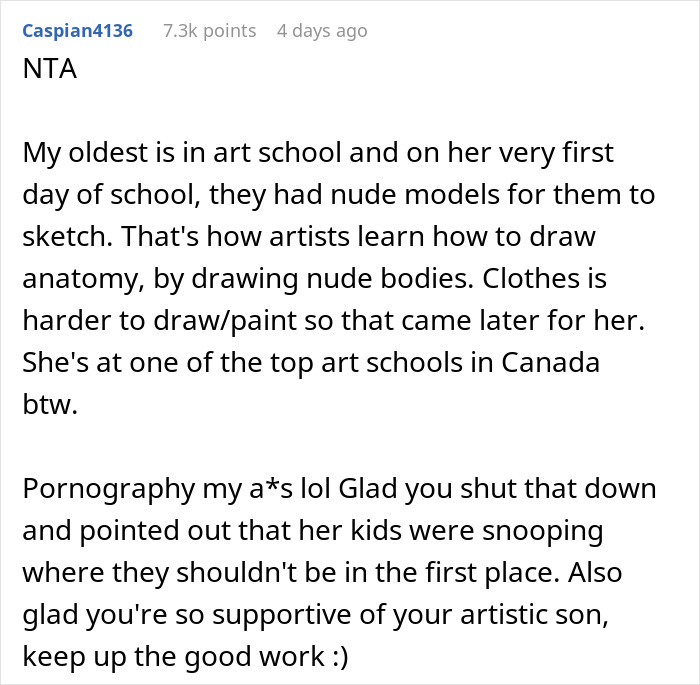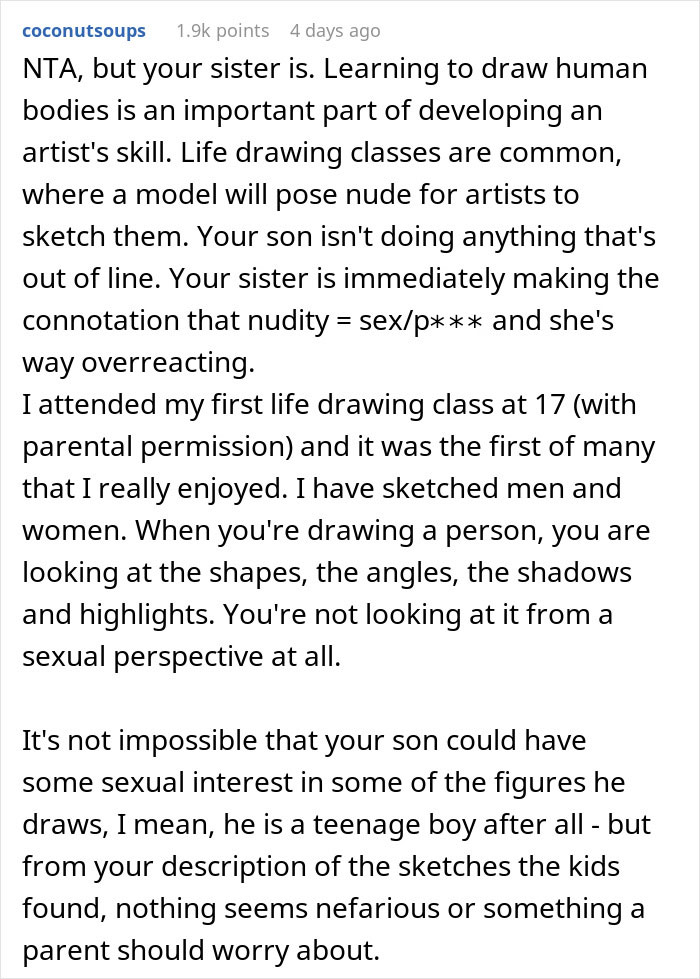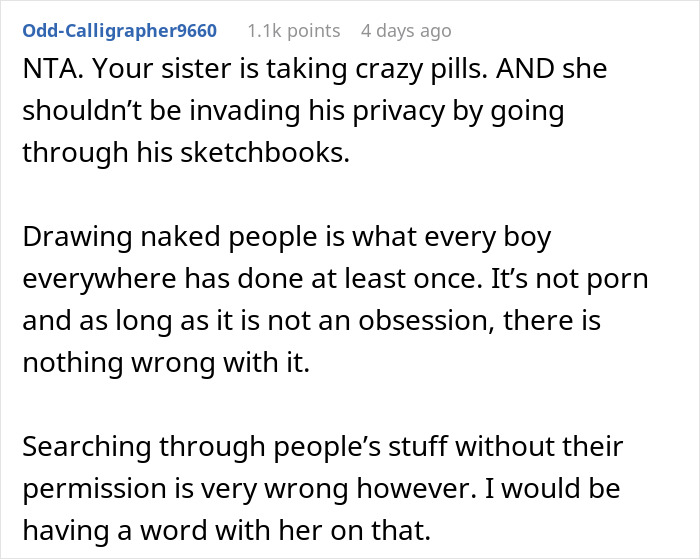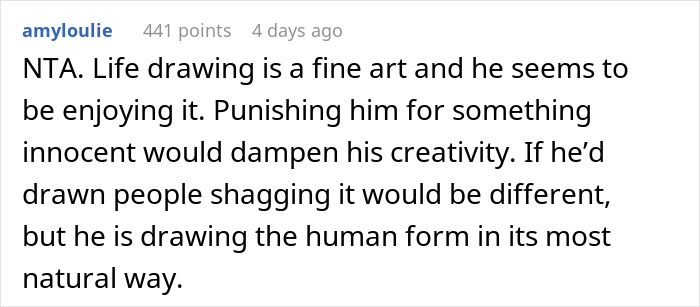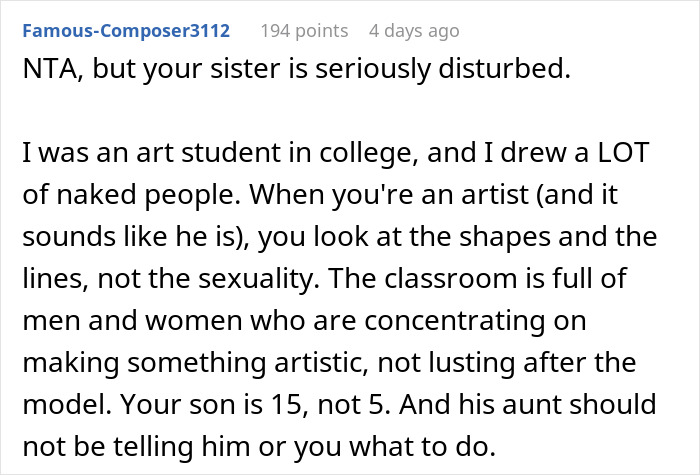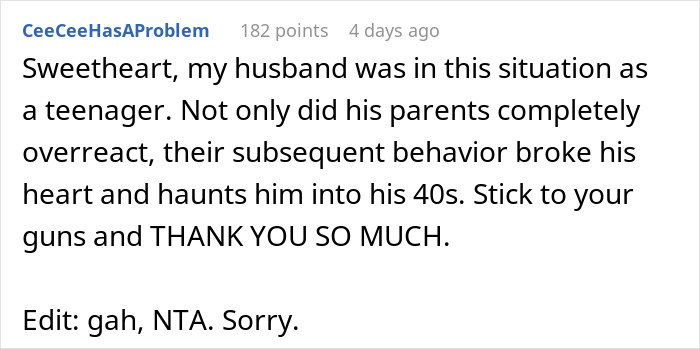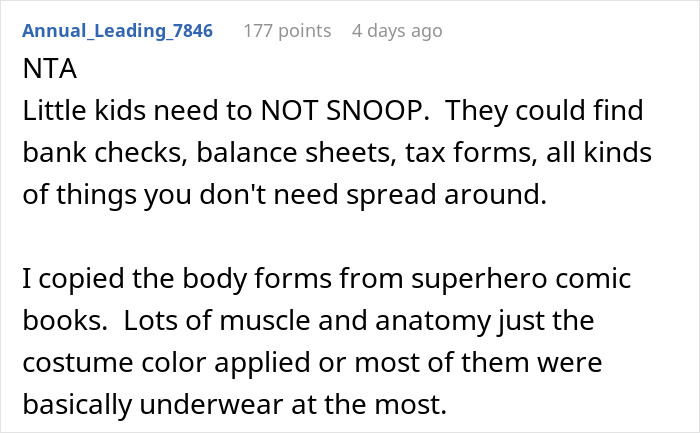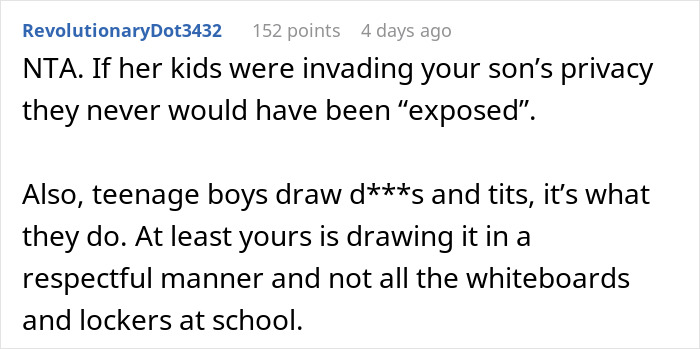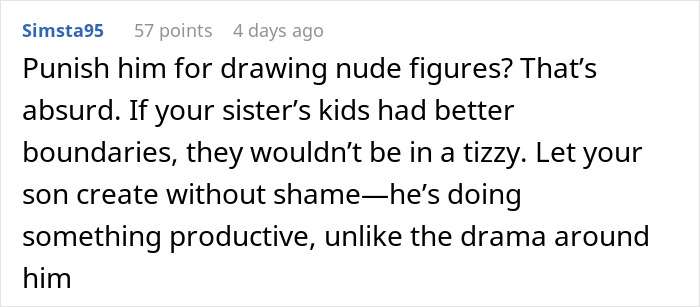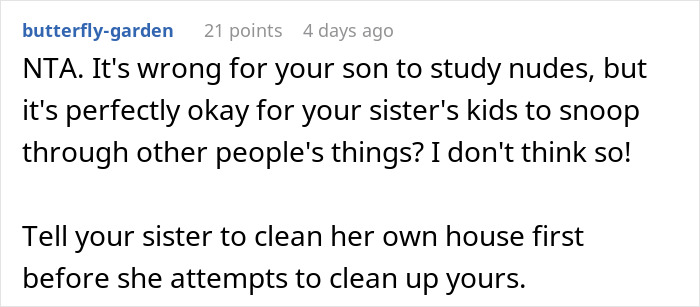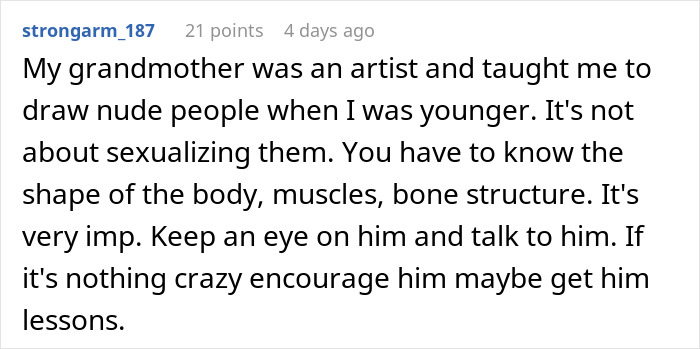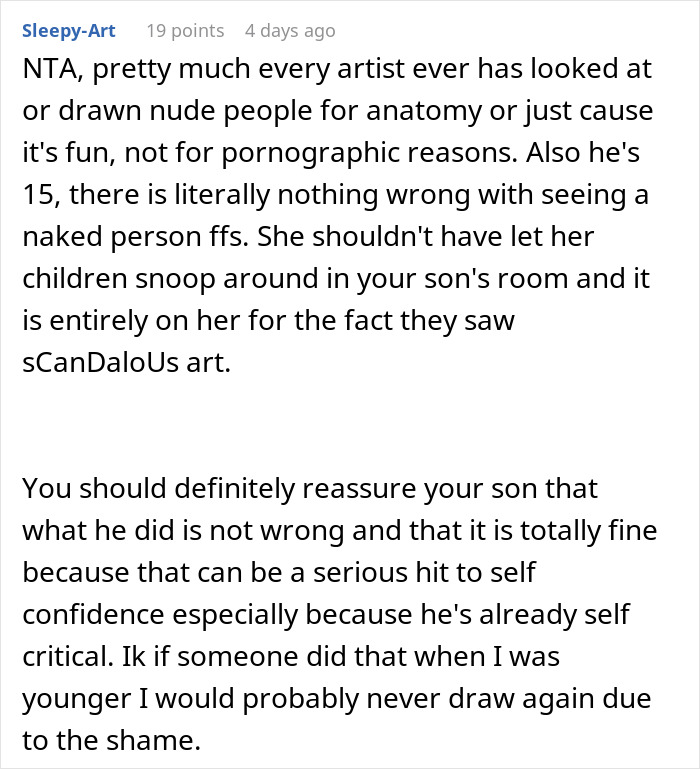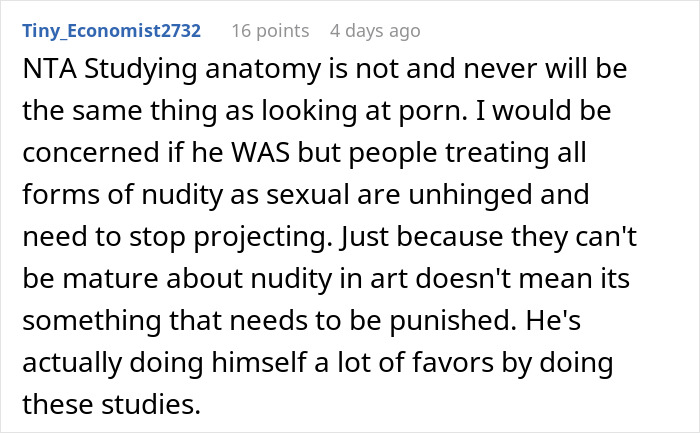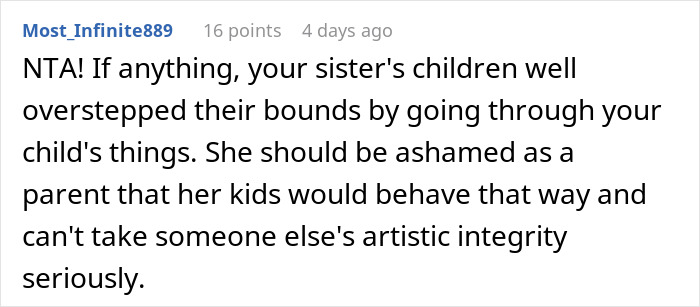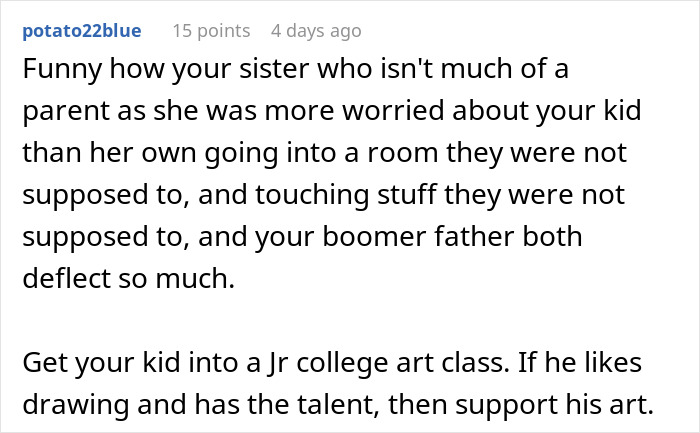Artistic expression is an interesting thing. Especially when the artist is a teenager. Who’s to say what’s appropriate to draw at that age and what’s frowned upon? Is it okay for teens to draw life, especially when the figures they’re depicting are naked?
That was the discussion that this family’s disagreement raised online. A father recently asked people whether he was wrong not to punish his teenage son for his anatomy drawings. The aunt, his sister, said those kinds of drawings were inappropriate for a teenager to do, and she demanded he be punished. The dad, however, stood his ground, but he still wondered whether his stance was right.
Bored Panda reached out to Dr. Melanie McNally, a licensed clinical psychologist and brain coach, to tell us more about teenagers and their artistic expression. She’s an expert in teen mental health and the author of The Emotionally Intelligent Teen and Helping Your Unmotivated Teen. Read her insights below!
A teenager got in trouble with his aunt for sketching the human figure

Image credits:vadymvdrobot (Not the actual photo)
She claimed drawing human anatomy was inappropriate for a teenager, but his dad backed the young artist


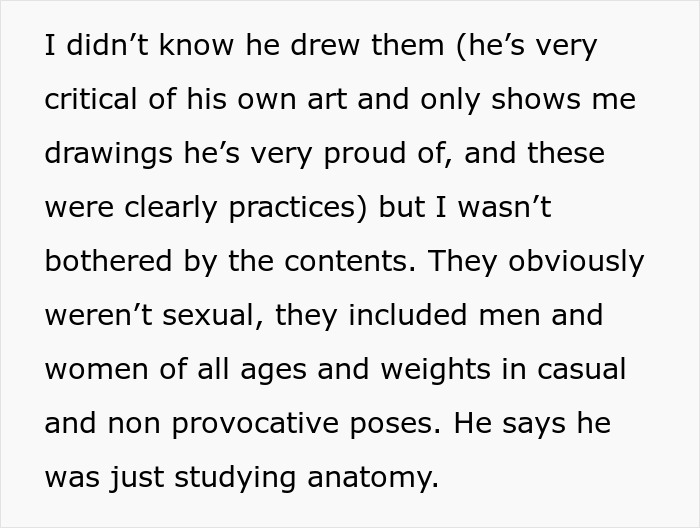
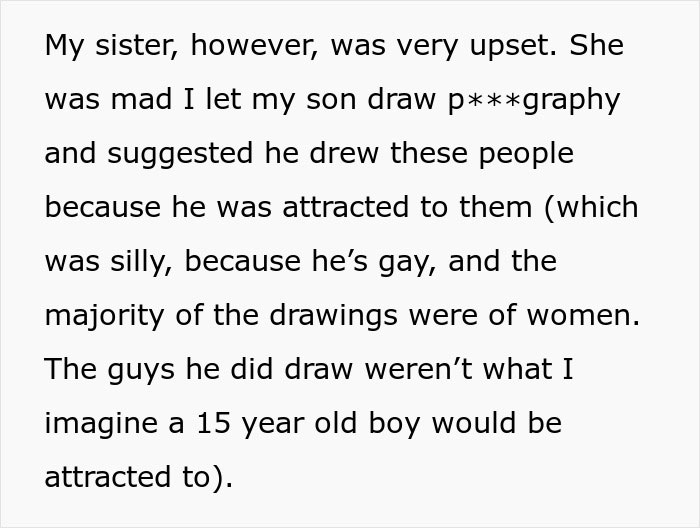

Image credits:shotprime (Not the actual photo)


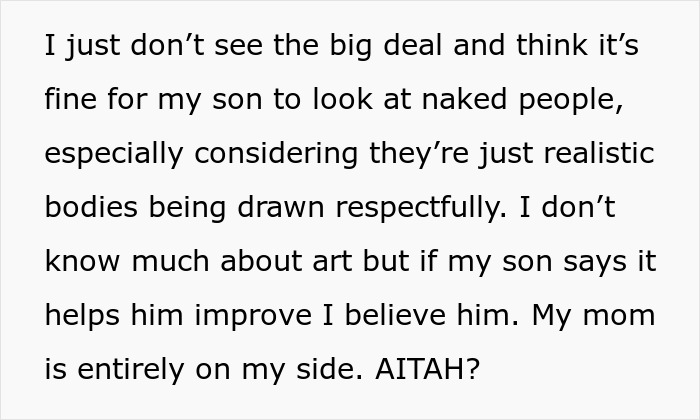
Image credits: AITAHdrawings
When it comes to children and teens drawing naked bodies, it’s more about the ‘why’ than the age of the artist
Teen mental health expert Dr. Melanie McNally tells Bored Panda that curiosity is innate to children and young people, and it can often include the human body. When kids are younger, they might start asking uncomfortable questions. When they become teens, the naked body might become an interest for the artistically inclined.
“They also might draw things from personal experience, and if they’re exposed to naked bodies, they might be more likely to draw them,” she explains. “So rather than focus on the age of the individual, it’s more important to consider the underlying reason why in order to determine if it’s appropriate or not.”
“Is the individual doing it because they recently started changing for gym class at school? Are they taking an art class and the teacher is encouraging them to draw the human form?” McNally says that adults who seek to understand why their kids start drawing human anatomy can ask open-ended questions so that the teen doesn’t feel judged or shamed.
McNally also has some advice for teens on how to broach this subject with adults who think such drawings are inappropriate. “When trying to discuss more challenging topics with adults, it’s always helpful if the young person first chooses a time [when] everyone is calm, undistracted, and receptive to a conversation.”
“I also recommend that the young person explain their underlying reason for doing these kinds of drawings, whether it’s for a class, because it’s challenging, or perhaps it was suggested to them by a more advanced artist,” McNally says.
“If the young person finds that the adult isn’t able to have a healthy conversation about the topic and this is a person who they need to understand their perspective, they might want to enlist the help and support of another trusted adult,” the psychologist adds.
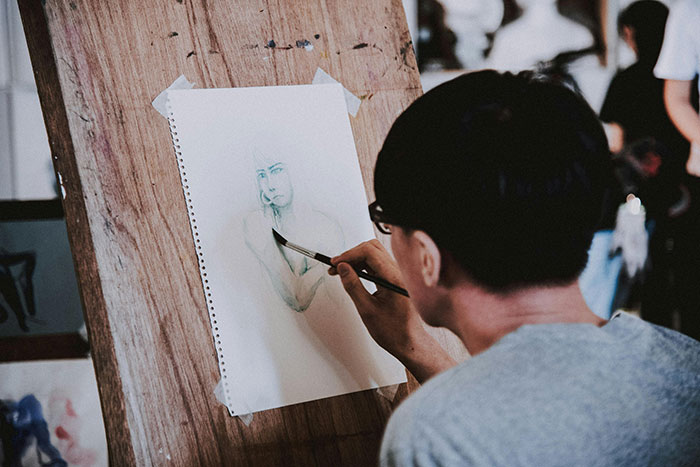
Image credits:Abby Chung (Not the actual photo)
Life drawing can help teenagers have more grounded ideas of what “real” bodies look like
For aspiring artists and even people who like to draw as a hobby, life drawing can be an excellent practice. It can help hone one’s hand-eye coordination and observational skills, and it can even be a way to relax and meditate.
But for teenagers, it can have another surprisingly positive effect. The lead tutor at London Drawing, Anne Noble-Partridge, believes that life drawing classes for teens can have an immensely positive effect on their self-body image and their perception of what a “real,” healthy body looks like.
“Nudity has become very sexualised in our society, yet if you are drawing, it’s a safe space, and there is respect,” she explained. “Through life drawing, teens get a more rounded view of bodies; they see older, younger, heavier and thinner people and there’s no judgment. It’s a neutral setting.”
One study found that people indeed believe that life-drawing classes for adolescents can help them develop more grounded ideas of what “real” bodies look like and challenge the representation of perfect bodies in the media.
What people often get wrong (as the aunt in this story probably did) is thinking that nude sketches or drawings are inherently sexual. As writer Marinella Mezzanotte explains, “A life model’s nudity isn’t about sex, it is about attention.” Particularly, it’s about the fact that all types of bodies deserve this kind of attention and deserve to be drawn.
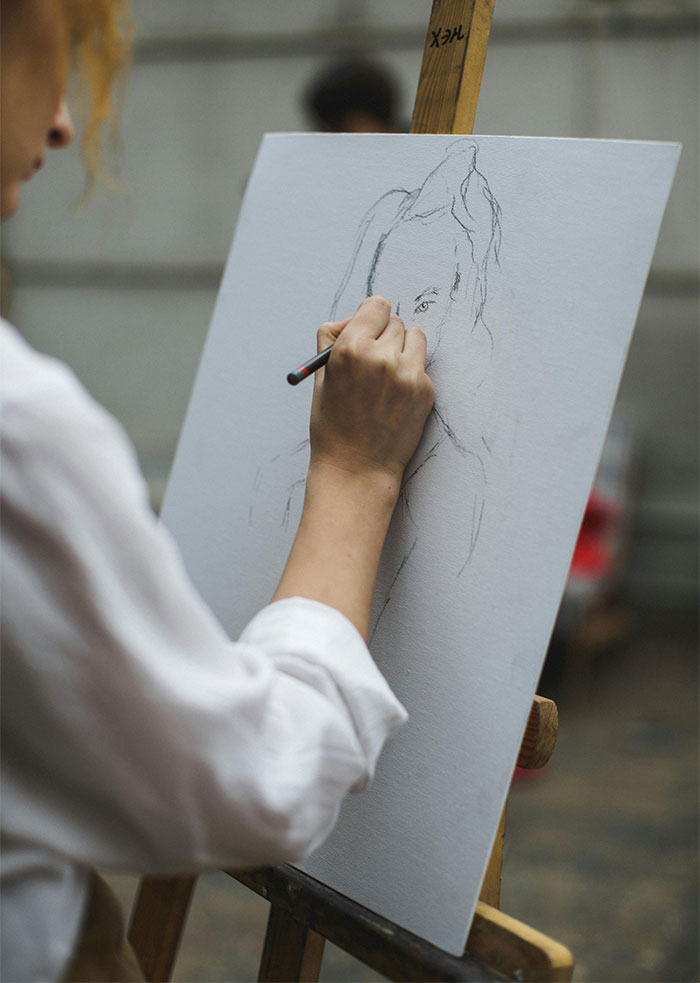
Image credits:cottonbro studio (Not the actual photo)
Many people pointed out that this is what artists do and the dad was right to refuse to punish his son

